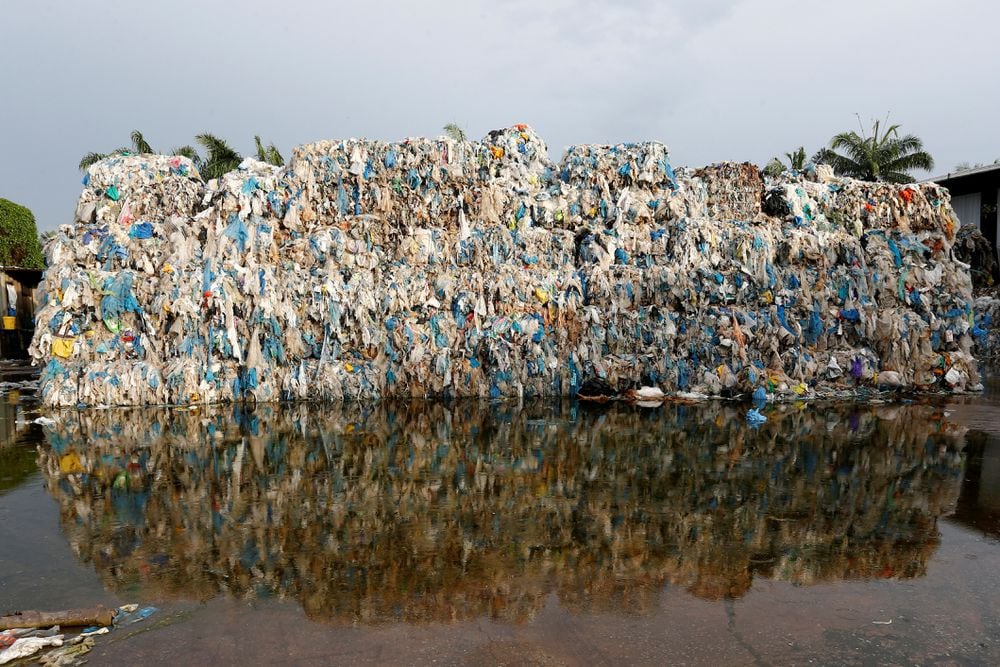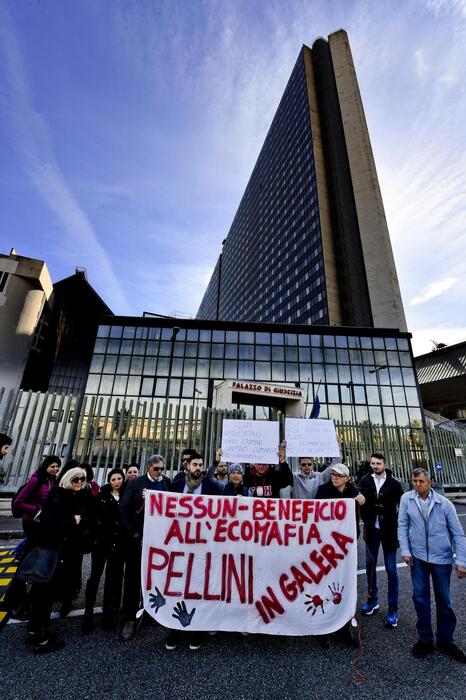The flapping in this case was in 2018, when China vetoed the entry into its territory of plastic waste from other countries. And the consequences of this butterfly effect have been noticed in half the world in the form of fires in recycling plants, illegal dumping, fraudulent exports ... The rest of the countries - both the exporters of this garbage and the importers - have not been able to digest in a regulated way the huge amounts of plastic waste that China received until a year and a half ago. And crimes related to this waste, in which organized crime and mafias are often involved, have experienced an “alarming” increase since 2018, according to a report prepared by Interpol based on data provided by 40 countries.
- Climate change alters the scent of the planet
The report analyzes the consequences for both new importers (countries in Southeast Asia that have suffered a “considerable increase” in the last two years in illegal shipments of waste) and for exporters (among which Europe stands out).
The authors of this analysis point out that garbage exporting countries have experienced a significant increase in the disposal of waste through “illegal dumps and fires, both accidental and deliberate” as they do not have an industry capable of taking on the waste that they used to ship to China. In the case of new Asian importers, the rapid increase in the arrival of waste has translated into a growth of “unauthorized recycling” and also of “illegal landfills”.
"Increased imports," explains Interpol, "has fueled the illegal dumping of unprocessed household plastic waste in Southeast Asian countries." In addition, pirate facilities and companies have proliferated. Malaysia, one of the most affected by this phenomenon, closed 170 illegal recycling factories in 2019 alone. In parallel, attempts to fraudulently introduce containers loaded with this garbage have increased. The Malaysian government decided last year to launch a control campaign and inspect all waste containers that arrive at its ports, in which waste is often mixed to camouflage the most dangerous.
Spain, fires and illegal exports
The Government of Malaysia, like that of other countries in the region, has also undertaken a policy of returning containers to their countries of origin. Earlier this year, it had returned 150 of these containers. And 10 returned to Spanish ports, where an investigation is open to clarify the irregular export of waste.
Spain is part of the list of countries in which there has been an increase in crimes related to the treatment of garbage since 2018. 40% of the 40 countries that have participated in the Interpol analysis have recognized the growth of this crime They also include France, Italy, Sweden and Austria - all of them are part of the block of garbage exporters affected by the closure of China.
The report highlights that Spain used to "export almost 60% of its plastic waste to China." "The current recycling centers do not have the capacity to treat all the plastic that is no longer exported," warn the Interpol researchers. It is noted that between 2017 and 2018 fires in landfills and treatment centers increased by 100% in Spain.
Southern European countries have mainly reported to Interpol for the preparation of this analysis an increase in these fires, although these “suspicious” fires have also multiplied in the recipient countries of Southeast Asia. The Interpol study recognizes the difficulty in proving the intentionality of this type of accident in plants and landfills, since they are facilities that can accidentally burn relatively easily. But the report highlights the case of the Netherlands, where the government has been working with insurance companies, which have stopped covering waste fires in outdoor warehouses. The result is that "the Dutch authorities have observed a clear drop in the number of fires at recycling plants between January and March 2020 following this change in insurance coverage." "This case shows that a part of the increase in waste fires is almost certainly due to deliberate acts," concludes Interpol.
More restrictions
The closure of China has not been the only one that has occurred. Other Asian countries such as India and Thailand have also begun to apply total or partial restrictions due to the problem that is being generated in their territory. Interpol researchers warn that exporters will again adapt to these restrictions and redirect trade to more vulnerable countries. The report cites, for example, movements already detected towards Laos and Myanmar.
Outside of Asia, other future destinations are being targeted, such as countries in Latin America and Africa. "In Africa, existing routes for the illegal trade in e-waste could possibly be used for plastic waste shipments," they warn.
The authors also warn of future risks in the areas of origin of these garbage. The nearly 200 countries of the world agreed last year to toughen export regulations for plastic waste within the framework of the Basel Convention. All the changes will take effect next year and will further complicate exports. Researchers warn that if waste-generating countries do not invest to treat their waste within their territories, the amendment to the Basel Convention approved in 2019 “could probably mean more illegal disposal of plastics in the regions of origin, along with illegal imports in destination regions ”.
The risk of photovoltaic panels
Interpol researchers point to the recycling of photovoltaic panels in the future risks section. They point out that there are very few treatment facilities for these plates in the world due to low demand so far. However, during this decade the first generation of photovoltaic panels (which have a useful life of about 25 years) will be discarded. "There are risks of illegal ways to dispose of the panels," warns Interpol. In the same way, the report warns of the lack of an adequate infrastructure in the world for the recycling of lead batteries and, above all, lithium, which will lead the electric car revolution in the coming years.






/cloudfront-eu-central-1.images.arcpublishing.com/prisa/ILLMSM3CL5EZTGR5TPAFNGGS6Y.jpg)


